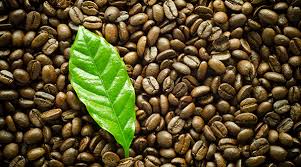Caffeine is a coordination central nervous system stimulant of the methylxanthine class. It is the world’s most widely consumed psychoactive drug and one of the most studied food ingredients. It is a naturally-occurring substance found in the leaves, seeds, or fruit of more than 60 plant species. Caffeine, an alkaloid naturally occurring in plants, can be found in cocoa beans, kola nuts, tea leaves, and, evidently, coffee beans. It’s added to many popular soft drinks as a flavoring ingredient to add a tinge of bitterness. Additionally, caffeine is a component of a number of pharmacological preparations and over-the-counter medicines including analgesics, diet-aids, and remedies for both the cold and the flu.
Paula Yaeger, a senior at CHS, gives her thoughts as to why she has seen an increased amount of teenagers drinking caffeinated beverages. “I think a lot of people don’t get enough sleep because they have a lot of activities, plus the homework, plus studying if they have a test, it’s just so much work and it makes us stay up so much later and then we end up not getting the right amount of sleep and then we think we need to take caffeine to boost ourselves to get through the day again.”
Catlin Soler, a sophomore, believes that businesses have advertised that “caffeine consumption is almost an expectation.” On the question if she thinks adults drink more caffeine than teenagers, and vice versa, she says, “I think that you can see it more in teenagers than adults just because there’s a social aspect that a lot of corporations have put into drinking their products, and so teenagers will go to places and consume caffeine and will not really think about what they’re actually doing … I think that teenagers definitely do that a lot more than adults because often we want to be with the social norm, whereas adults have a lot more to do and while they may consume caffeine for different reasons, like staying awake, and not so much as a social piece, I think that makes them consume them a little bit less than teenagers.”

Caffeine consumption has increased in the teen population over the years, largely due to energy and coffee drinks being marketed specifically to teens. So should teenagers avoid caffeinated drinks altogether? Valerie Parbon, a fitness and health educator at CHS says, “Teens’ brains are still growing and are generally more impacted by caffeine than adults are. If a teen does caffeine, they should limit their total consumption to no more than 100mg/day; which is about a cup of coffee.” She also mentions, “If a student is having problems with their sleep, getting or staying asleep, has anxiety, or struggles with depression; it is worth looking at how much caffeine they are putting into their body. Getting too much can cause issues with sleep, which begins a cycle of other issues that come along with not getting enough quality sleep.”
Those who say they are “addicted” to caffeine tend to use the term loosely. Evidence of true addiction, such as that associated with addictive drugs of abuse, has not been found in studies of caffeine. Some people may experience mild, temporary effects from abruptly stopping caffeine consumption, including headaches, restlessness, and irritability. However, experts agree that discomfort can be avoided by gradually decreasing caffeine intake over time.
Research shows that caffeine can increase mental alertness and enhance performance on certain mental tasks. In addition to alertness and mental performance, caffeine may also improve reasoning in sleep-deprived people. At normal doses, caffeine has variable effects on learning and memory, but it generally improves reaction time, wakefulness, concentration, and motor coordination. Caffeine will not give you unusual or “superhuman” abilities but instead may assist you to reach your peak mental alertness. The amount of caffeine needed to produce these effects varies from person to person, depending on body size and degree of tolerance
Minor undesired symptoms from caffeine ingestion are common and include mild anxiety, jitteriness, insomnia, increased sleep latency, and reduced coordination. However, these symptoms aren’t usually sufficiently severe to warrant a psychiatric diagnosis, though caffeine can have negative effects on anxiety disorders. At high doses, typically greater than 300 mg, caffeine can both cause and worsen anxiety. For some people, discontinuing caffeine use can significantly reduce anxiety. In moderate doses, caffeine has been associated with reduced symptoms of depression and lower suicide risk. In postmenopausal women, high caffeine consumption can accelerate bone loss.









































